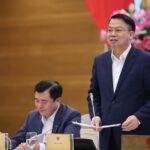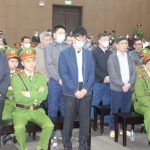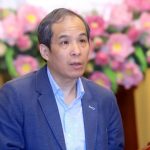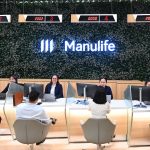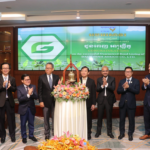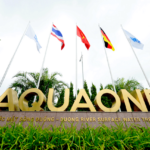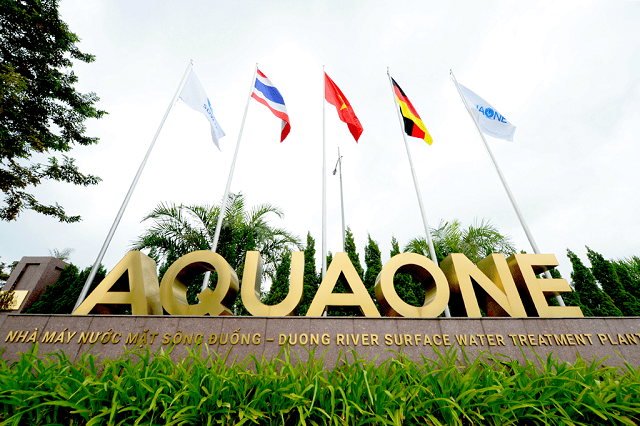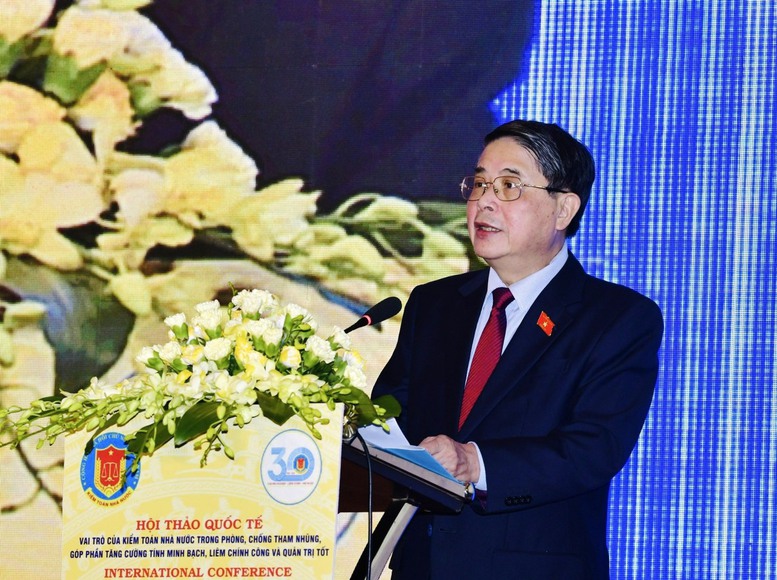
Vice President of the National Assembly of the Republic, Mr. Nguyen Duc Hai, delivered a welcoming speech at the workshop – Photo: VGP/HT
At the workshop, Mr. Nguyen Duc Hai, Vice President of the National Assembly of the Republic, delivered a welcoming speech.
Following this, the conference listened to presentations from four agencies: Ms. Tsakani Maluleke, Auditor General of the South African Audit Office; Mr. Benedikt Hofmann, Deputy Representative of the United Nations Office on Drugs and Crime (UNODC) for Southeast Asia and the Pacific; Mr. Hendra Susanto, Vice Chairman of the Indonesian Audit Board; and Mr. Doan Anh Tho, Deputy Auditor General of the State Audit Office of Vietnam.
The speakers presented their papers on identifying corruption in the new context, the role and contributions of SAIs in preventing and combating corruption, and the coordination between member SAIs in anti-corruption efforts, contributing to enhanced transparency, public integrity, and good governance. They also discussed challenges, solutions, and recommendations for anti-corruption work.
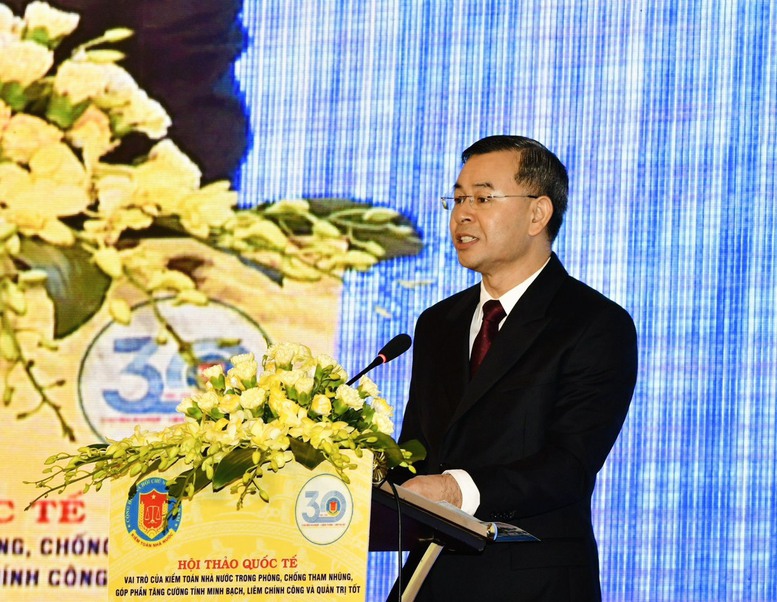
Mr. Ngo Van Tuan, Auditor General of the State Audit Office of Vietnam, speaks at the workshop – Photo: VGP/HT
Mr. Benedikt Hofmann, Deputy Representative of the United Nations Office on Drugs and Crime (UNODC) for Southeast Asia and the Pacific, informed that according to the United Nations Convention against Corruption (UNCAC), corruption includes many forms such as bribery; embezzlement or other misappropriation of property by a public official or embezzlement of property in the private sector; trading in influence; abuse of functions; illicit enrichment; laundering of proceeds of crime; and obstruction of justice.
In reality, with the advancement of technology, especially artificial intelligence, corruption is increasing like other types of crime. Corruption exists at all levels, from petty to grand corruption, especially serious and systemic corruption, facilitating criminal activities.
“UNCAC has a unique, comprehensive approach, incorporating preventive and enforcement measures, including mandatory requirements for the criminalization of corrupt acts. The Convention also reflects the transnational nature of corruption, providing an international legal basis for international cooperation and the recovery of stolen assets,” shared Mr. Masood Karimipour.

To clarify some of the workshop’s content, international SAIs shared their experiences on ensuring the independence of the supreme audit institution to promote the role of the State Audit Office in preventing and combating corruption – Photo: VGP/HT
According to UNCAC, integrity, accountability, and transparency in the management of public finances and assets are essential and form the basis for public trust. UNCAC has provisions on audit requirements as a key element in preventing corruption, both in the public and private sectors. Other provisions of the Convention also state that it is important for auditors to fully perform their roles.
Mr. Hendra Susanto, Vice Chairman of the Indonesian Audit Board, said that the Supreme Audit Agency, also known as the Indonesian Audit Board (BPK), plays a crucial role in combating corruption and promoting transparency, public integrity, and good governance.
According to the Vice Chairman of the Indonesian Audit Board, BPK aims to strengthen its anti-corruption capacity effectively and strive to enhance the ability to trace illegal transactions to gather audit evidence and protect digital evidence, as well as amend the Memorandum of Understanding (MoU) with government agencies. These activities help improve the professionalism of auditors, enhance audit effectiveness, and reduce the risk of fraud in audited entities.
In his closing remarks at the workshop, Mr. Ngo Van Tuan, Auditor General of the State Audit Office of Vietnam, emphasized that the International Workshop on “The Role of the State Audit Office in Preventing and Combating Corruption, Contributing to Enhanced Transparency, Public Integrity, and Good Governance” organized by the State Audit Office of Vietnam had successfully accomplished its program.
Mr. Ngo Van Tuan affirmed that in the future, to help the State Audit Office of Vietnam grow stronger and fulfill its tasks effectively, we look forward to continued support and assistance from colleagues, SAIs, and international organizations.
The head of Vietnam’s audit sector affirmed the role and necessity of preventing and combating corruption, the role of supreme audit institutions in anti-corruption efforts, especially in improving the efficiency of public financial management, assets, promoting transparency and accountability, and thereby contributing to preventing and combating corruption.
In addition, the fulfillment of the responsibilities of the supreme audit institutions also depends on each country’s legal framework and resources to enable the supreme audit institutions to perform more thoroughly and effectively in anti-corruption work. For example, the Indonesian SAI has effectively conducted investigative auditing.
Mr. Ngo Van Tuan said that the workshop had proposed and recommended solutions to improve the effectiveness of the supreme audit institution in preventing and combating corruption, thereby making an important contribution to enhancing openness, transparency, public integrity, and good governance in the management and use of public finances and assets.
Firstly, raise public awareness and recognition of the role of the supreme audit institution in preventing and combating corruption in the management and use of public finances and assets.
Secondly, ensure the position and independence of the supreme audit institution in performing its tasks in the Constitution and legal system.
Thirdly, strengthen relations with parliaments and anti-corruption agencies through information sharing, developing joint work programs, organizing joint workshops and conferences to share knowledge, experience, and audit results, especially sharing the results achieved in the process of investigative auditing.
Fourthly, enhance international relations, share knowledge, experience, and new audit methods to continuously improve the effectiveness of audits, thereby contributing to preventing and combating corruption.
RELATED NEWS
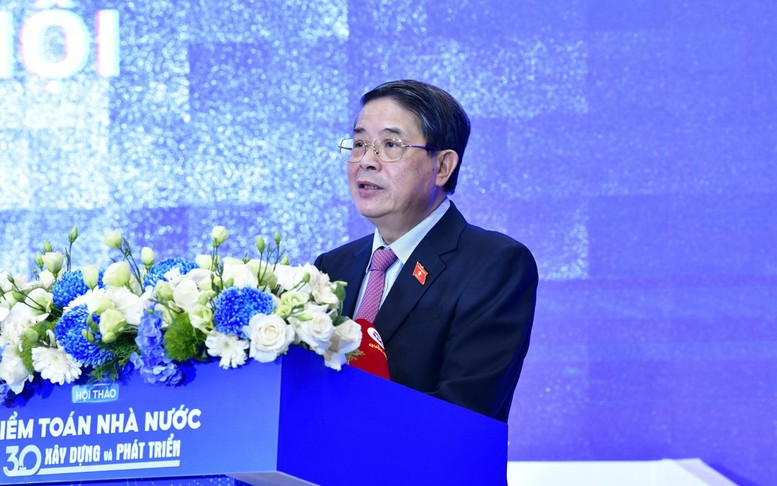
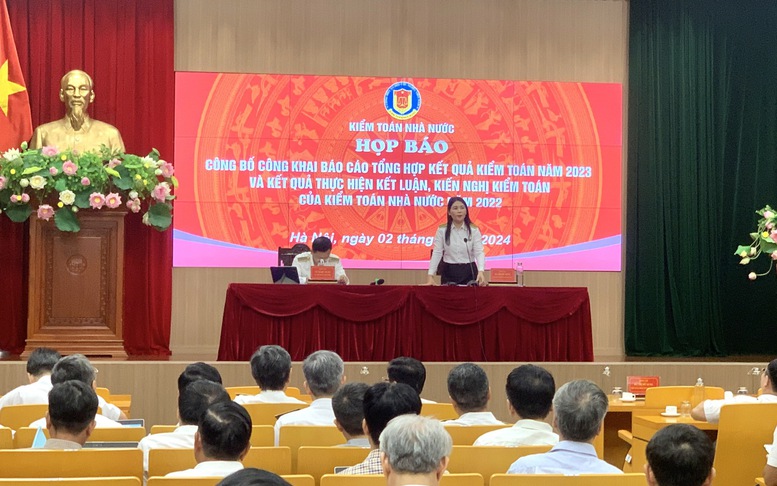
Mr. Ngo Van Tuan affirmed that over the past 30 years of construction and development, the State Audit Office of Vietnam has increasingly affirmed its position as an effective agency of the Vietnamese State in improving the efficiency of management and use of public finances and assets and contributing to preventing and combating corruption and negativity.
“Compared to other SAIs, the State Audit Office of Vietnam is still very young. Thirty years is not a long time, but with such achievements, in addition to the attention and leadership of the authorities and the efforts of all officials, civil servants, and employees of the State Audit Office, we cannot ignore the support of SAIs, especially INTOSAI, ASOSAI, and ASEANSAI,” expressed Mr. Ngo Van Tuan.
“In the future, to help the State Audit Office of Vietnam grow stronger and fulfill its tasks effectively, we look forward to continued support and assistance from colleagues, SAIs, and international organizations. I would like to express my sincere appreciation for your cooperation,” Mr. Ngo Van Tuan specially emphasized.
The Ministry of Finance to implement new regulations to upgrade the stock market
Deputy Minister Nguyen Duc Chi stated that in order to achieve the goal of upgrading the stock market as soon as possible by 2025, the Ministry of Finance and relevant ministries need to actively implement preparatory tasks in 2024.
Minister of Finance Hồ Đức Phớc: Aiming to upgrade the stock market
In the exchange in the early days of the Year of the Snake 2024 with the Financial Market and Monetary Journal on the orientation of the stock market’s development, especially upgrading the stock market in the near future, Minister of Finance Ho Duc Phoc emphasized that for the Vietnamese stock market to be upgraded, besides the efforts of the Ministry of Finance, strong direction from the Government, the Prime Minister and the cooperation of many ministries, sectors and businesses is crucial. As the leading agency, the Ministry of Finance is urgently and resolutely working towards this goal.
Deputy Governor: New Law Empowers Public to Monitor Banks
Deputy Governor Thai Son Do evaluates the amended Law on Credit Institutions as creating conditions for public oversight of manipulative and abusive activities by banks.
Manulife pioneers the use of technology to ensure customers’ full understanding and accurate purchases
Manulife Vietnam is thrilled to announce the official implementation of the information verification and contract issuance monitoring process for all M-Pro policyholders, effective from January 1, 2024. This comes after a successful pilot phase, demonstrating our commitment to ensuring accuracy and transparency in our insurance policies.

